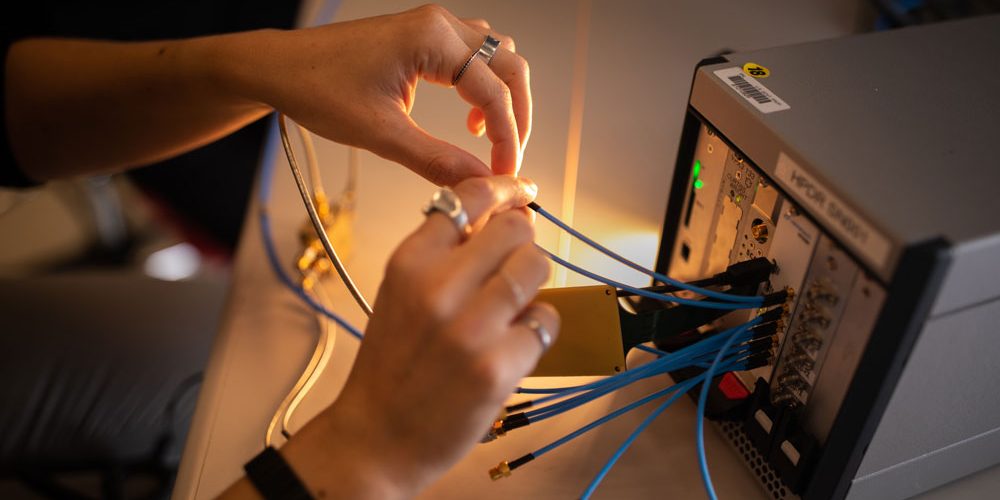If radars wore pants, a lot of them would still be sporting bell bottoms.
“Significant aspects of radar haven’t fundamentally changed since the 1970s,” said Kurt Sorensen, a senior manager who oversees the development of high-performance radio frequency imaging technologies at Sandia. “Like a record player, most military-grade systems are still analog.”
Now, Sandia is giving radar a major digital makeover. Researchers are working to replace legacy analog radars commonly used by the military with a new, digital, software-defined system called Multi-Mission Radio Frequency Architecture. The overhauled design promises U.S. Warfighters unprecedented flexibility and performance during intelligence, surveillance, and reconnaissance operations, even against sophisticated adversaries.


